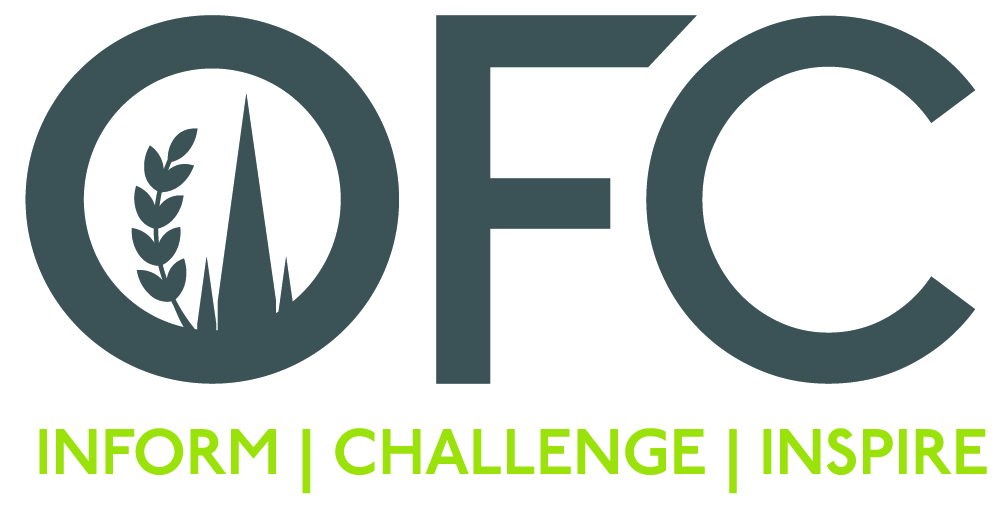The Oxford Farming Conference’s (OFC) Bitesize series provides a platform for vibrant discussion on the biggest issues facing the agricultural industry. The more recent bitesize, held in partnership with the Institute for Agriculture Management (IAgrM), focused on the labour crisis and what farming’s future workforce might look like.
Hosted by OFC Director and soft-fruit grower, Marion Regan, three guests provided a different perspective, and potential route forward, for the industry.
“As a soft fruit grower, I’m acutely aware of how the twin shocks of Brexit and Covid have hit us,” says Marion. “Labour is a huge part of our costs and through investment over the years, we have made significant productivity gains year on year just to keep pace with its rising cost and to attract the most skilled staff.
“People are needed at all links of the food and farming supply chain and there are acute shortages throughout it of abattoir workers, fresh produce harvesters, butchers, packers, technicians. What will farming’s future workforce look like? Who will they be? How will they work? And how will they be rewarded?”
Carl Atkin, the Vice-Chairman of the IAgrM and cofounder and director of Terravost, has almost twenty years of management and consulting experience across agricultural supply chains and farming and food businesses.
He says that farm labour has been declining due to mechanisation, scale economics and automation, but other issues are affecting recruitment.
“We have an issue with pay and conditions versus other sectors in the economy and we need to be honest about that. Farm work is often unsocial, it’s often in remote locations and it can be highly seasonal. We also have some perception issues, some of which are real, and some perceived that can impact recruitment.”
Carl believes that farming’s future workforce will be smaller, more agile, and multi-skilled.
“We now need people who are skilled in technology, automation and data – it’s a very different skill set than what we were recruiting for even 20 years ago.”
Dr Duncan Robertson is co-founder and CEO of Dogtooth Technologies, an agri-robotics company based in Cambridge.
He says that automation will be critical moving forward to address the labour crisis and that the agri-robotics market will grow to $20.3B USD by 2045.
“The soft fruit industry in the UK and across the globe is facing an existential crisis unless we can find a credible alternative to our reliance on seasonal agricultural workers.
“We can build robots that have sufficient visual acuity and dexterity to perform delicate tasks – such as picking soft fruit. We are increasingly able to build machines against the metrics that matter to our customers and growers and can perform comparably closely with humans.
“We think equipped with a team of robots, and a robot operator, that we will be able to harvest a great many more berries per minute than pickers working alone.”
Liz Haines, is a dairy farmer from Staffordshire who is interested in innovative ways to attract young people into farming.
“We’ve moved in the opposite direction of automation and have a simple, low input system which has lower capital requirements. This enables us to teach new staff members the system relatively easily without years of experience.
“We’re actively trying to recruit people from outside the industry with little or no experience because we find we can coach them more easily to do the job the way we want it to be done. The most important attributes we look for in employees are honesty, reliability, and a positive attitude.
“Last year during the lockdown, we employed my husband’s personal trainer whose business went under during covid. He was hard-working, happy to do any job and a great person to have in the team. He learnt to milk, look after calves, drive the tractor and general maintenance around the farm.”
You can watch the full bitesize on-demand, here or join us for our next and final Bitesize of 2021 on Thursday 4 November at 12noon in partnership with the Global Farmer Network. The session is themed Resilient Leadership and will examine leadership from the perspective of communications and the media, on-farm, within the supply chain and in the world of business and finance. You can register here to join.
The 2022 Oxford Farming Conference, Routes to Resilience, will be co-chaired by Barbara Bray MBE and Sarah Mukherjee MBE and will be held from 5 – 7 January 2022. Tickets are now on sale and can be purchased here.
JCM Media Contact: Rebecca Dawes – rebecca@janecraigie.com or 07792 467730

